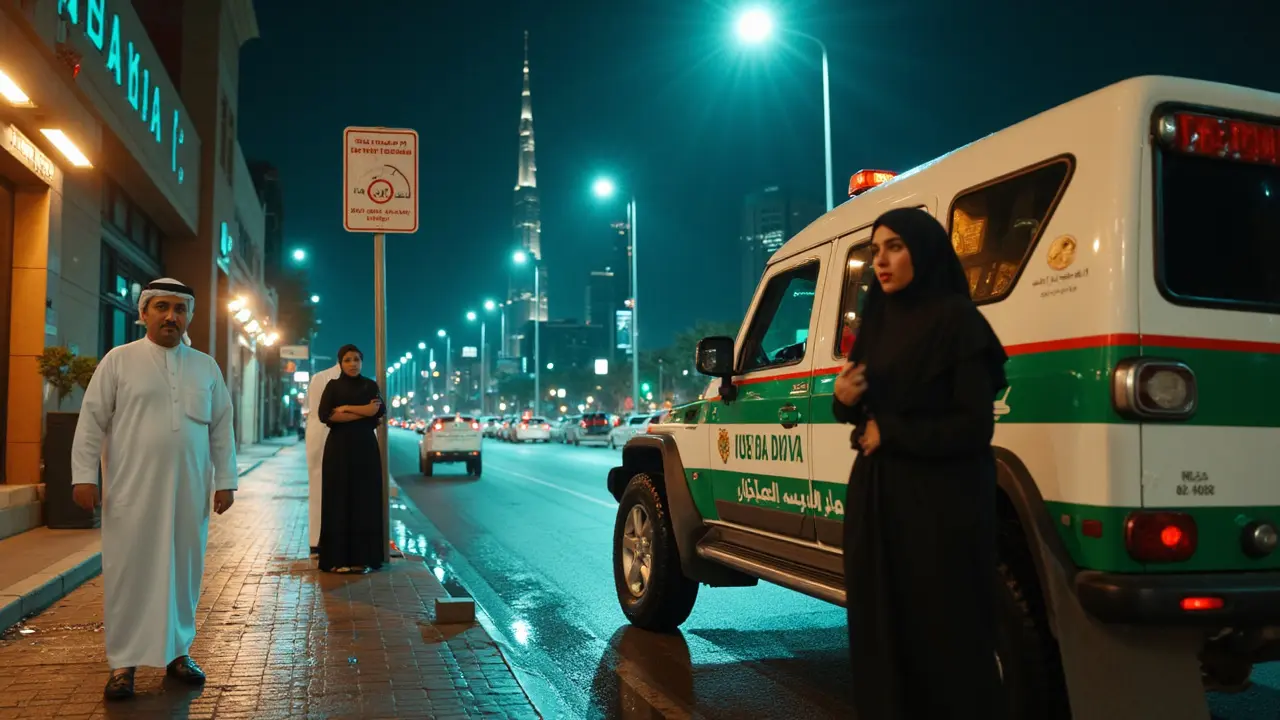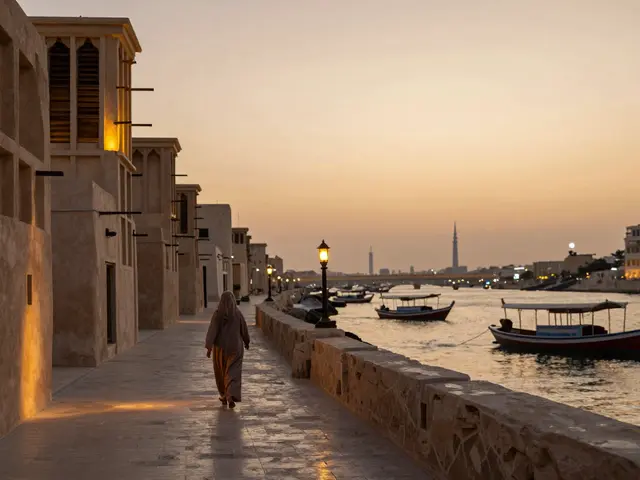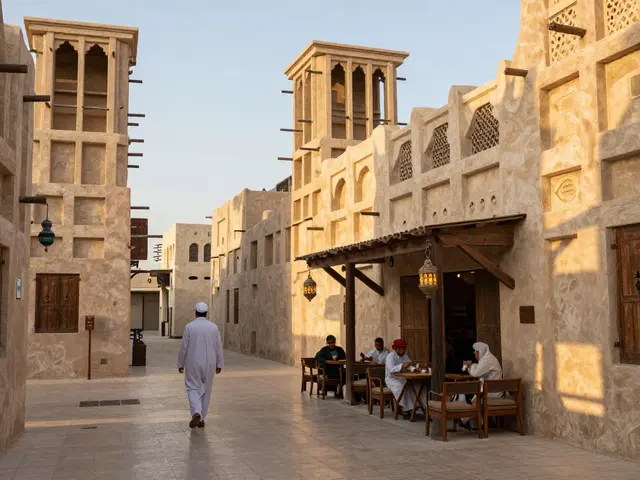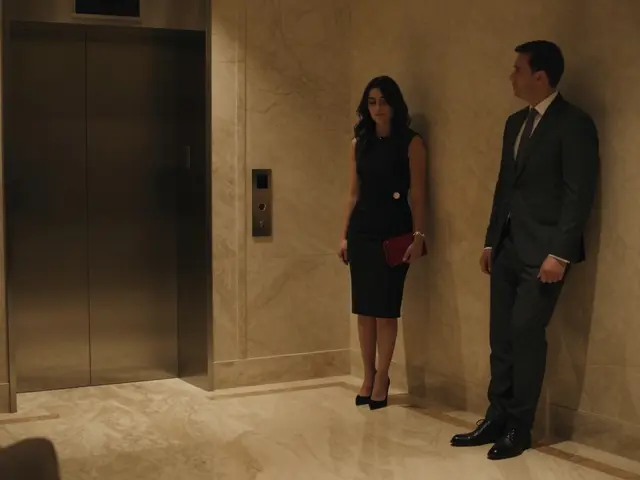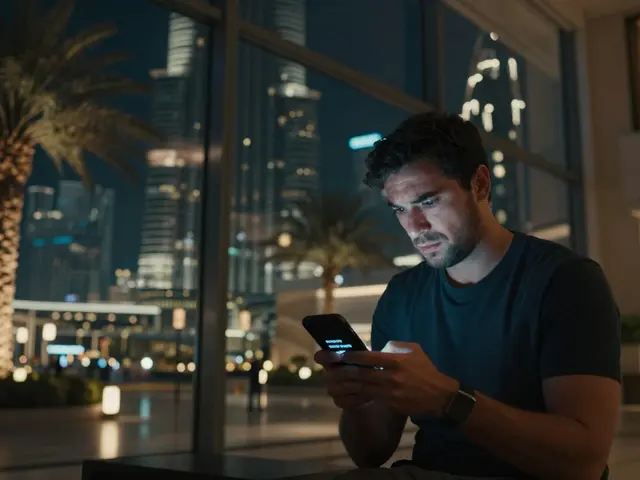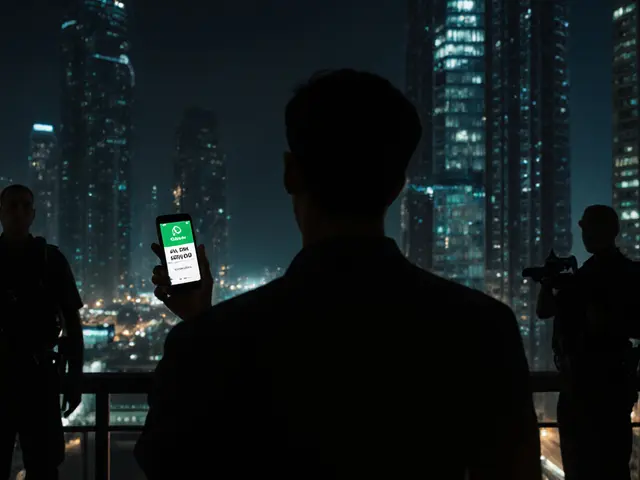If you typed this title, you’re probably looking for clarity, not judgment. You want to know how things actually work in Dubai, what’s legal, what’s risky, and where a private, drama-free path exists. Straight talk: prostitution is illegal in the UAE, and the rules are enforced. If you’re aiming for discretion and zero legal trouble, there are safer, fully legal ways to unwind and connect. I live here, I see how it plays out, and I’ll help you navigate the real landscape without sugarcoating it.
Here’s the direct answer and what you came for:
- TL;DR: prostitution in Dubai is illegal with jail, fines, and deportation on the table. Enforcement is active both offline and online.
- Key move: stick to licensed, legal services for relaxation and intimacy-adjacent experiences. There are plenty.
- Expect proactive checks in hotels, nightlife venues, and on apps. Don’t risk your residency or your trip.
- Prices for legal alternatives: think AED 250 to AED 800 for standard spa treatments, and premium wellness up past AED 1,200.
- Zero tolerance on trafficking and coercion. If something feels off, it probably is. Walk away.
The Reality in 2025: Laws, Risks, and What You Actually Need to Know
Dubai is safe, modern, and strict on vice crimes. The UAE’s Crimes and Penalties framework updated in 2021 continues to criminalize prostitution, brothel-keeping, and facilitation. The Cybercrime law also prohibits promoting or arranging illicit sexual services online. Outcomes if you get involved can include arrest, fines, jail time, and deportation if you are not a citizen. That’s not theory. It happens.
How enforcement looks on the ground: hotels, nightlife areas like Marina, JBR, Business Bay, and Deira run checks, and you’ll see digital policing too. Authorities monitor ads, set stings, and target illegal “massage” operations that advertise via stickers or cards. If you’ve seen those cards on car windshields, that’s a classic crackdown target.
Common traps visitors fall into:
- Hotel lobby approaches. Someone pitches “company,” asks you upstairs, and insists on upfront cash. This often ends with theft or a police encounter.
- Random WhatsApp or Telegram messages after you connect to public Wi-Fi. They’re scraping numbers, then pushing illegal services.
- Unlicensed “massage” from a WhatsApp ad. The venue looks sketchy, IDs are hidden, payments are cash only. You’re in a legal and personal safety risk zone.
- Social media DMs with “discreet service” promises. These are policed under cybercrime rules, and many are scams.
The private space myth: people assume what happens in a hotel room is invisible. It isn’t. Hotels have security, CCTV, visitor logs, and policies about unregistered guests. If someone is stopped at the elevator without proper registration, you now have attention on you. Not a smart way to spend a holiday or risk a residency.
What changed in recent legal reforms? The country eased some personal status issues, but prostitution remains illegal. Cohabitation rules shifted for couples, yet paid sexual services are still prohibited. The anti-trafficking law remains firm. If you see signs of coercion or passport confiscation, you’re not just near a crime scene - you’re in one.
Heuristics that keep you safe:
- If it must be cash and done in a rush, it’s likely illegal or a setup.
- If the venue won’t show its license or won’t share the company name, walk out.
- If IDs are hidden or someone can’t freely speak, assume trafficking risk.
- If you feel you need to hide it from hotel staff, it’s probably not legal.
What penalties look like: ranges differ by case, but think fines, potential jail time, and deportation for non-citizens. Platforms and intermediaries get hit too. Online arranging isn’t a loophole - it’s a cybercrime exposure.
Credible legal references to understand the spirit of enforcement: the UAE’s Crimes and Penalties law (revamped in 2021), Cybercrime Decree-Law of 2021, and the Anti-Human Trafficking Law. You don’t need to memorize article numbers to read the room - the direction is strict, the enforcement is steady.
Bottom line for this first section: if your goal is privacy, safety, and no legal drama, the private path is not about finding illegal services. It’s about choosing legal, licensed experiences that deliver relaxation and connection without putting your life on pause.
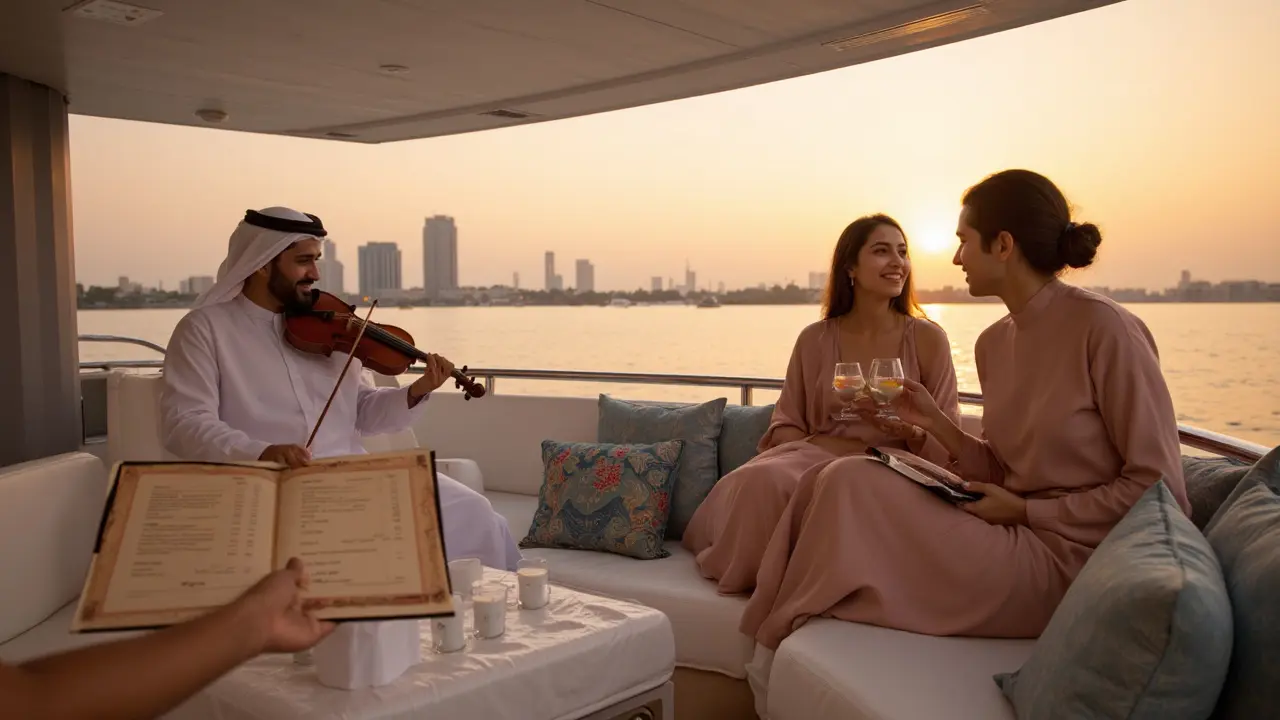
Discreet, Legal Alternatives: The Private Path That Won’t Get You in Trouble
Let’s reframe what “private path” can mean in Dubai. You want calm, comfort, and maybe intimacy with a partner - just not court dates. Here’s what that looks like when you do it right.
Licensed spas and wellness centers: Dubai is packed with them. From Marina to Downtown to DIFC, you’ll find high-end places with clear pricing and trained therapists. Book under your name, pay by card if you want a paper trail, and enjoy a normal service. No awkward hush-hush. No risk.
- Legit signals: trade license on display, front desk checks, clear menu of services, and a receipt without hesitation.
- Pricing you can expect in 2025: standard 60-minute massage from AED 250 to AED 450 at mid-range venues. Luxury spas at top hotels from AED 550 to AED 1,200+. Premium wellness rituals and hammam can go beyond AED 1,500, depending on the package.
- Booking channels: official websites, hotel concierge, or reputable aggregator apps. Avoid messaging a random number from a card on your windshield.
Private, legal intimacy with a partner: book a suite, order room service, draw the blinds, and focus on each other. Bring personal massage oil, set a playlist, try a couples’ bath if the room has a deep tub. That intimacy is yours and legal. Keep noise and conduct respectful, and don’t involve third parties.
Date-night routes that stay clean:
- DIFC for dinner, then a lounge with soft music. Lots of privacy without raising eyebrows.
- Sunset walks at Bluewaters or JBR, then a spa session for two at a licensed venue.
- Business Bay rooftop spots for a view and a quiet corner. Book in advance to avoid queues.
What about dating apps? People do use them, but be mindful. Don’t discuss money for intimacy. If the chat steers that way, step out. Meet in public first. Share your live location with a friend. If someone asks for payment or crypto for “arrangements,” that’s a major red flag and a potential legal issue.
How to spot a licensed spa versus a risky front:
- Licensed spa: receptionist verifies booking, neat uniforms, standard menu, standard payment, and a printed receipt. The space looks like a spa, not a rented apartment.
- Risky front: directions to a residential tower with strange instructions, inconsistent pricing, strict cash-only policies, and no visible business name.
Budgeting for a stress-free plan:
- Mid-range spa session: AED 300 to AED 500
- Premium hotel spa: AED 600 to AED 1,200+
- Couples packages at upscale venues: AED 1,000 to AED 2,500 depending on duration and add-ons
- Romantic add-ons: flowers, private dining, chocolate-dipped fruit, custom bath setups - allocate AED 200 to AED 600 extra
Use this comparison to align expectations:
| Aspect | Illegal Prostitution in Dubai | Legal Alternatives in Dubai |
|---|---|---|
| Legal status | Criminal offense under Crimes and Penalties law and Cybercrime law for arranging online | Fully legal when booked with licensed venues and within venue policies |
| Risk level | High - includes arrest, fines, jail, and deportation for non-citizens | Low when using licensed spas, hotel services, and reputable platforms |
| Typical cost | Unpredictable and often tied to scams or theft | AED 250 to AED 1,200+ depending on venue and service |
| How to identify | Cash-only, vague location, social media or random messages, pressure to rush | Clear license display, fixed menu, receipts, proper front desk process |
| Booking channel | Unverified numbers, DMs, vague profiles | Official websites, hotel concierge, well-known aggregator apps |
| Ethical concerns | High risk of trafficking and coercion | Regulated businesses with staff protections and standards |
| Privacy | Illusory - surveillance, stings, hotel checks | Genuine - private rooms, confidentiality, professional standards |
Quick checklist before you book anything:
- Is the place licensed and easy to verify? If not, skip it.
- Is the service clearly described on a website or menu with a tax invoice available? Good sign.
- Is anyone asking for cash only and refusing a receipt? Not worth it.
- Do you feel rushed or pressured? Take a breath and step back.
- Are you considering involving a stranger in your hotel room? Reconsider - that’s where most problems start.
Smart move for residents and frequent visitors: pick two or three reputable spa brands you trust. Rotate bookings to keep it fresh. You’ll get consistent quality and zero anxiety.
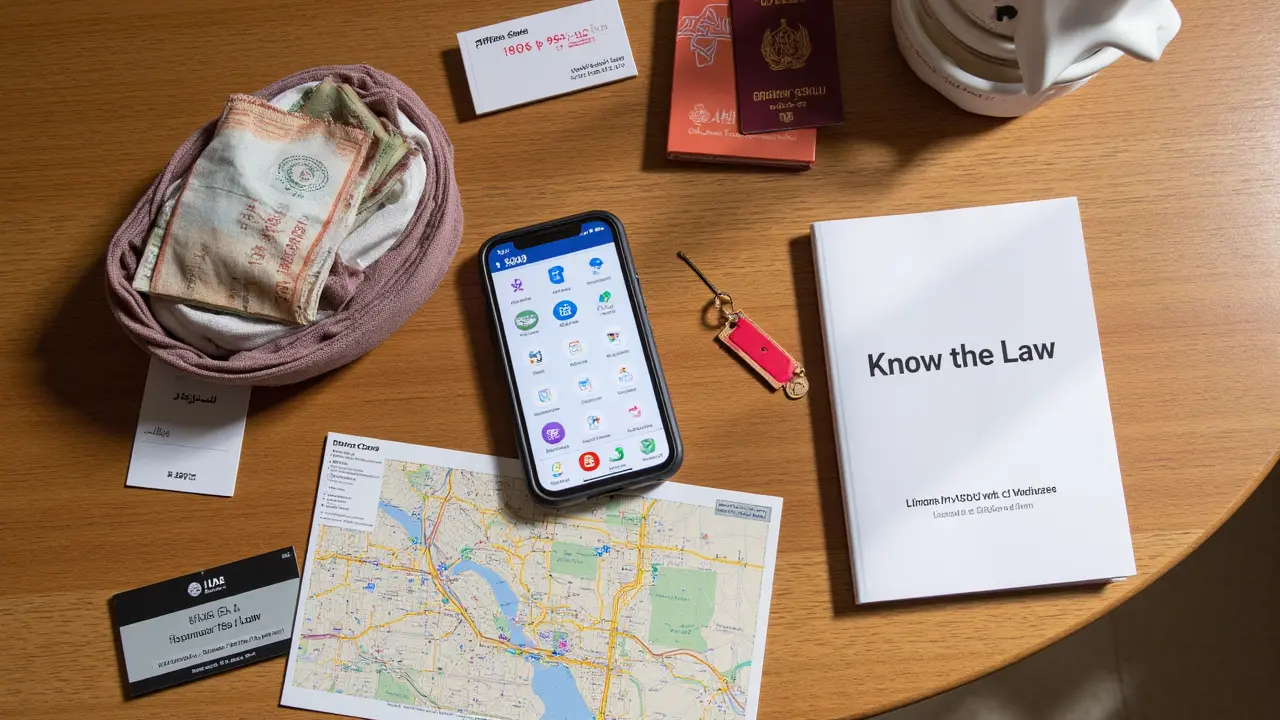
Safety Tips, Mini-FAQ, and Your Next Step
Safety-first rules that actually help in Dubai:
- Never pay anyone upfront in a private setting for anything that sounds illicit.
- Avoid WhatsApp or Telegram bookings from random numbers or cards. Those are classic enforcement targets.
- Use hotel concierge and official booking platforms for wellness or entertainment.
- If you sense coercion or trafficking, disengage immediately. Report via official channels if safe to do so.
- Respect venue and hotel policies. Staff are trained to flag suspicious activity.
Common red flags and what they usually mean:
- “No ID, no name, just come” - unlicensed and unsafe. Walk away.
- “Tip the security” - corruption bait or a scam. Say no.
- “Photos not allowed” in a non-spa environment - you’re being cut off from evidence. Leave.
- “Pay now or we call police” - extortion. Do not engage. Step into a public, staffed area and seek help.
Mini-FAQ
- Is prostitution legal in Dubai? No. It’s illegal and enforced, including online facilitation.
- What if I meet someone on a dating app? Meet in a public place, do not discuss money for intimacy, and watch for solicitation. If payment comes up, end the chat.
- Are hotel visitors allowed? Policies vary. Many hotels restrict unregistered guests from going upstairs. Don’t test the rules with strangers.
- What about “massage cards” on cars or sidewalks? These usually promote illegal setups and are frequent targets for crackdowns. Avoid them.
- If I get caught, can I pay a fine and go? Not guaranteed. You could face jail and deportation. Do not treat this like a parking ticket.
- Are there legal ways to relax privately? Yes. Licensed spas, private hotel experiences, and partner-focused stays are all legal.
- Any signs of trafficking I should watch for? No control over ID or phone, someone speaking under pressure, no knowledge of location, or someone else handling all movement. Exit the situation and report via official channels if possible.
How to plan a discreet, legal evening in Dubai:
- Pick the vibe: spa-and-sleep, dinner-and-lounge, or a quiet suite night with your partner.
- Book through official channels. Screenshots of your booking are your friend.
- Keep plans in venues that ask for ID and give receipts - those checks keep you safe.
- Set a budget: AED 800 to AED 2,000 covers a solid night with a good spa, light bites, and transportation.
- Have a backup plan if a venue is full - alternative spa nearby or room-service dining.
Scam shields that work in real life:
- Never share your room number in chats or with strangers in lobbies.
- Keep valuables in the safe during treatments or when guests are in your room for legitimate services like dining or maintenance.
- If a situation flips from friendly to pushy, go to the nearest staffed area. Cameras and people reduce risk.
If you’re a resident, protect your status. Deportation is a real outcome. If you’re a visitor, protect your trip. Losing a passport or spending two days sorting a police report is the worst souvenir.
Final thought: the most private path in Dubai isn’t about sneaking around. It’s about choosing regulated spaces that exist to give you calm without consequences. Book the spa. Line up a great dinner. If you want intimacy, keep it between consenting adults without money involved. That’s how you enjoy the city and sleep easy.

